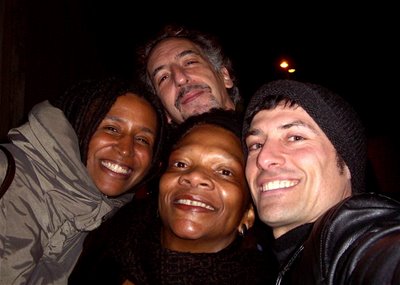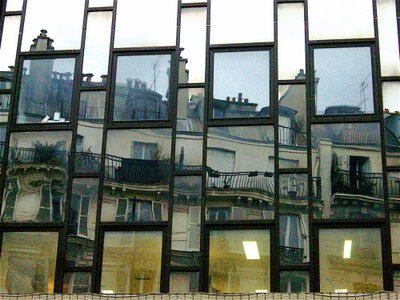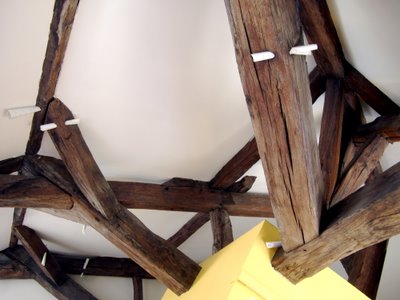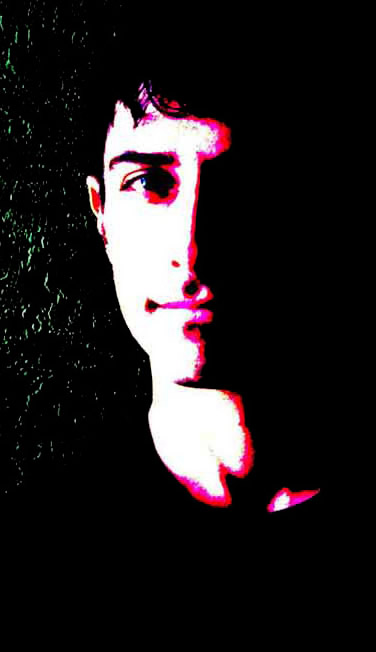Paris post-mortem in pictures
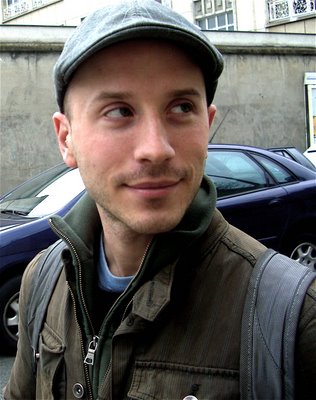
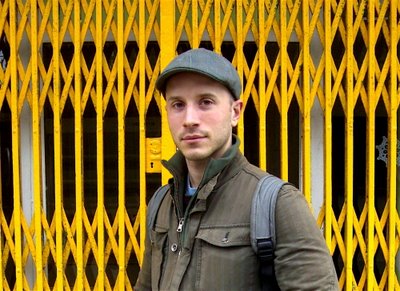
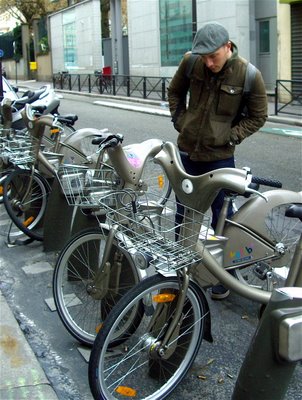
James, fascinated by Velib', finally got to ride one when Joel gave him a pass on his chip-enabled European credit card (our third-word magnetic stripes don't function in many machines here - try buying an RER ticket and you'll see what I mean). Joel and James rode back up from the Marais where they had dinner while I stayed home and sat on my overstuffed suitcase to close it. I burned through a box of novel notes - how did my bag get heavier? At the airport, I was 3 kilos over, but two of the loudest, pushiest and most vulgar Americans ever to leave Long Island miraculously materialized in front of us - actually they cut - and so when I spoke reasonably polished French to the woman behind the counter her face broke into a smile, she pronounced my accent "joli," she slapped a sticker on the suitcase and let us through.
Meanwhile, this is closer to my self-image as a speaker of French:

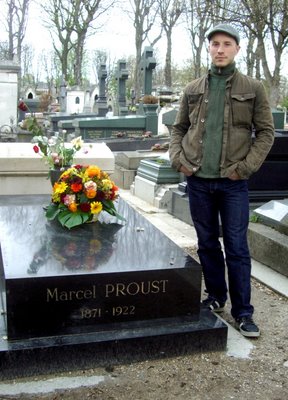
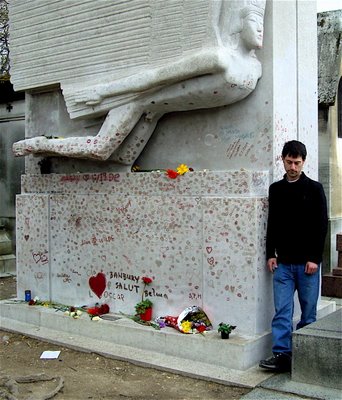
James and I had a stellar though intermittently soggy day at Père Lachaise. Too cheap to buy a map, we wandered around and I was able to retrace my steps from summer 2007 to find Proust and Wilde (both pictured above), also Callas and Piaf - a gay old time at the cemetery to be sure, even without getting to Gertrude & Alice or Poulenc. The day took an apocalyptic turn after large sculptural monuments caught our eye - WWII, Holocaust and airline disaster memorials. We ate our picnic lunch on a sunny stairwell, but weren't quite through when we felt drops, and then the drops started to bounce - hail. We took refuge in a crypt. On our way out: Jim Morrison, buried twice, the second time in bouquets.
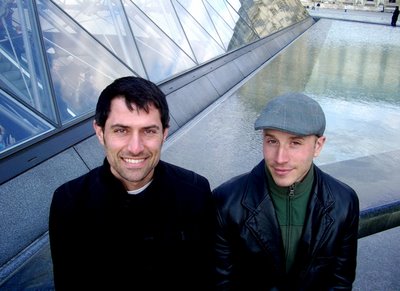
In my first ten weeks in Paris, I shunned museums. I saw the David LaChapelle exhibit at the Hôtel des Monnaies, and when James showed up we went to the Calder in Paris exhibit (ecstatic revelation - I went from being a Calder agnostic to a true believer). I rationalized the museum deficit by the fact that prior trips to Paris consisted of little else. I would have skipped the Louvre altogether if James hadn't put it on our post-gay agenda. We met up there with our San Francisco friends, actor/dancer/drag queen/faux king Kevin Clarke and novelist Karl Soehnlein, who were in Paris on their honeymoon.
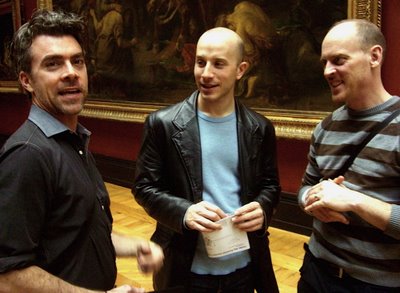
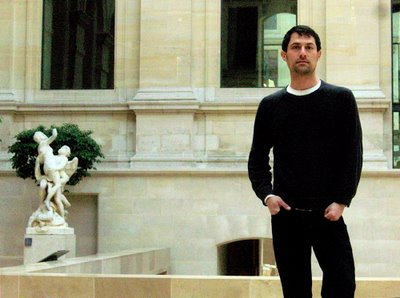
Kevin and Karl were the perfect double date in Paris:
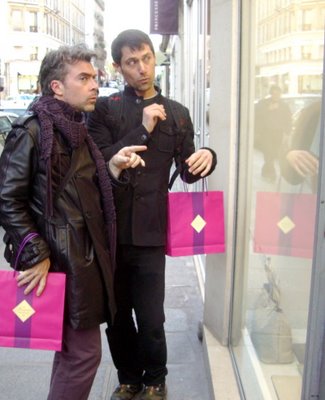
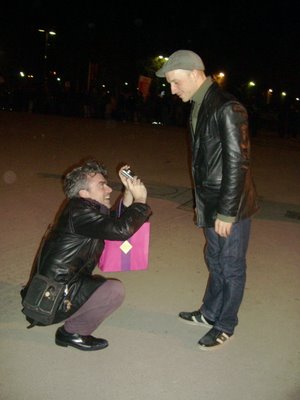
They were also in town for James's 32nd birthday party, at my studio at the Récollets -
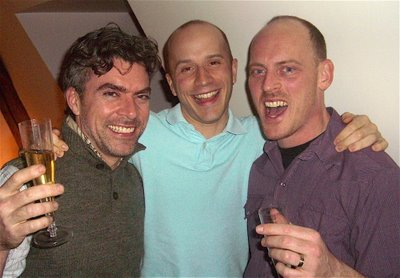

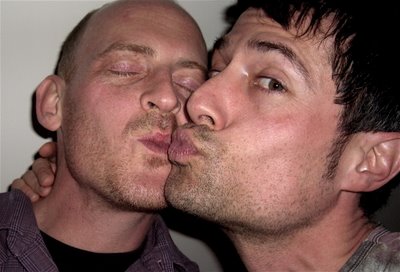
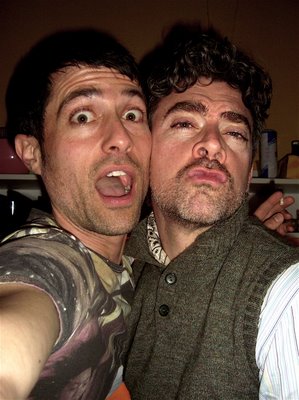
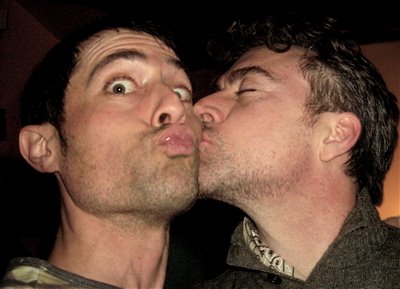
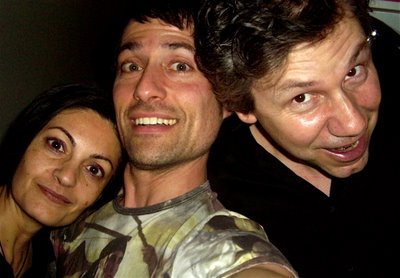
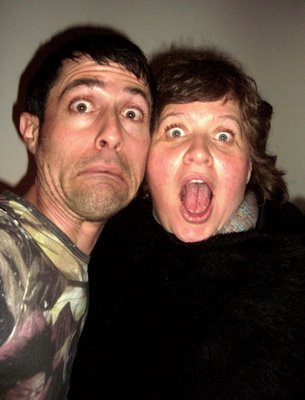

With Raina and our fellow Yale classmate Derek Thomson, whom she married. They are the parents of one son (five years old?) and twin baby girls.
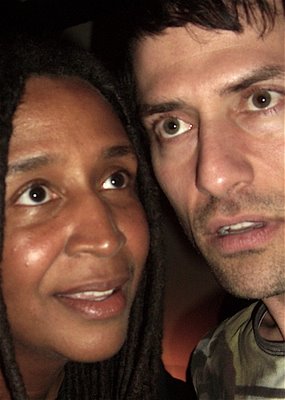
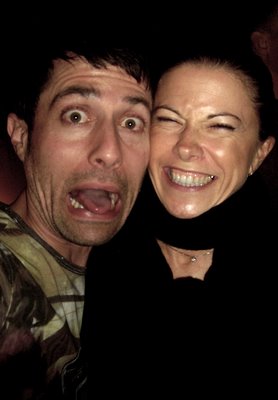
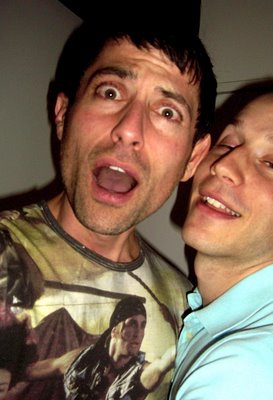
James has just informed me that "the sweetest part of the muffin is the top." This was in reference to my waistline.
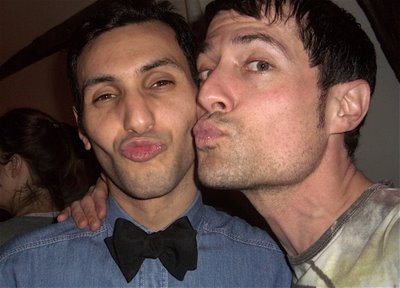
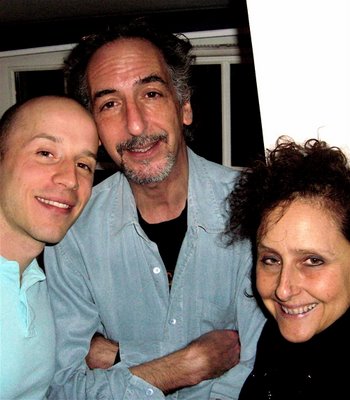
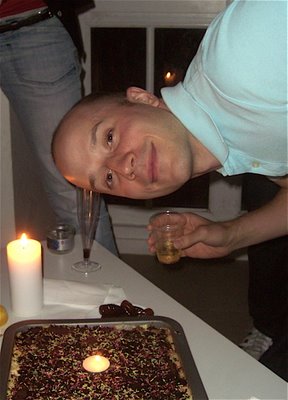
Joel's friend Alessandra brought one of her famous tiramisus and it was an admirable birthday cake.
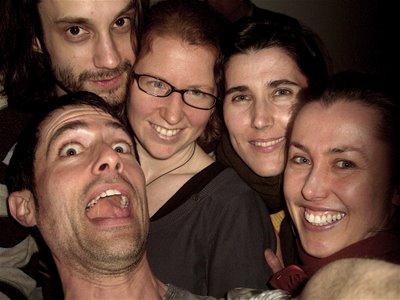
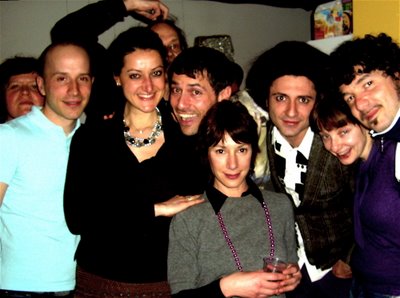
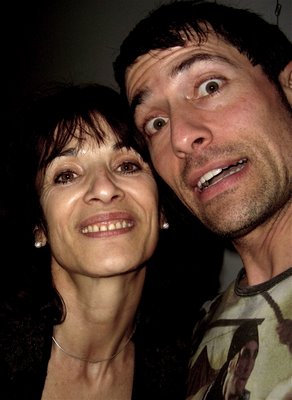
Corine Congiu, an amazing painter and one of my very favorite people in Paris because (among other reasons) there is no resorting to English when we talk.
James and I went to hear Gwen sing on the Rue Daguerre:
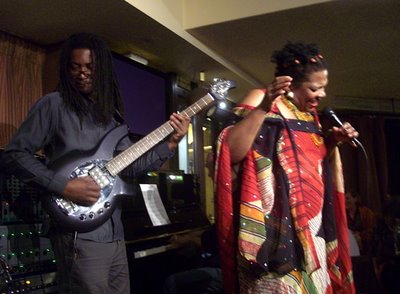
Twice (on Sunday) I was the guest of organist Olivier Latry in the organ loft at Notre Dame, where he is organiste titulaire. The second time, he took me and other guests up into the organ itself, which sits on the other side of the rose window on the western facade beneath and below the twin towers:
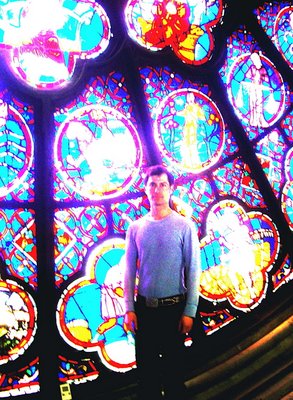
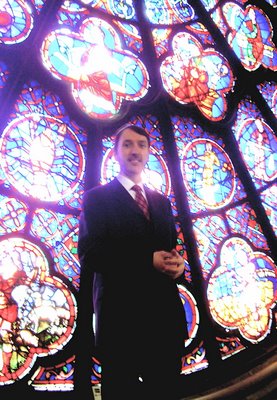
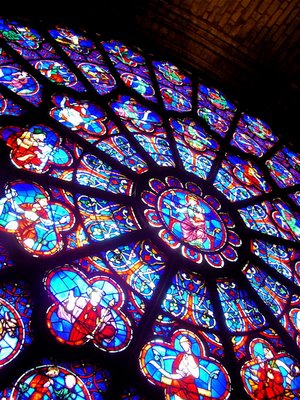
I had just given Olivier a copy of my book OH MY GOD: Messiaen in the Ear of the Unbeliever - his recordings of Messiaen's organ music both grace the soundtrack of the film on which it's based, and inspired the project to begin with. The concluding anecdote of the film takes place in a swell box, and I'd never seen one. Here it is:
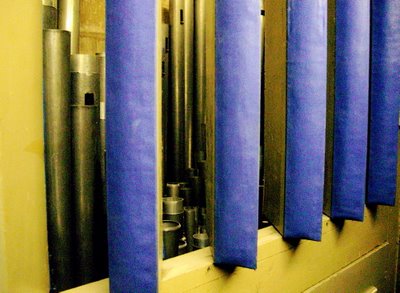
Here's the anecdote, from the full transcript of the film:
CLIP 164: ALBERT FULLER
I crawled in the bottom of a thirty-two-foot, open diapason made of wood, and it was big enough for a small kid to get into, and I fucked up the tuning thing at the end of course by doing it. But I always wanted to say that I had and I was there with Jimmy who gave me my first blowjob in a swell box, while Paul Calloway was playing some big French toccata thing. And we were in the middle of this box, and the organ was screaming. But on the outside, because the Venetian blinds were shut, people thought it was soft. But in the box, the sound ricocheted everywhere and it was the loudest thing I’ve ever heard. And in the middle of all this Jimmy bestowed upon me that great blessing, for the first time. And I went crazy! I went crazy. And the organ was my instrument. Oh boy—was it ever.
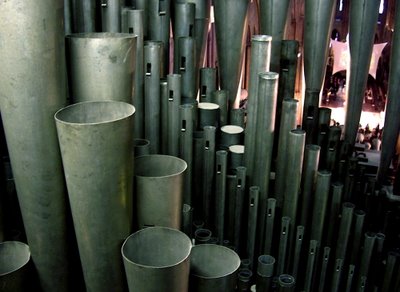
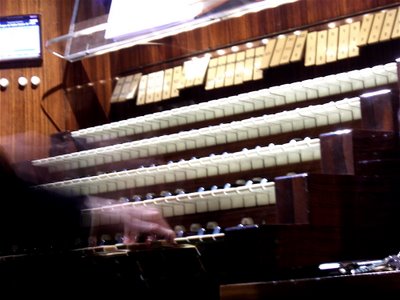
I have long been an admirer of Olivier Latry because of his 2002 recording of Messiaen's complete organ works. What I hadn't appreciated before this visit to Notre Dame was his ability to improvise. Part of the experience of being in the organ loft is that you're right in front of the instrument - I'm sure it's louder in the swell box itself but short of that this is pretty much the loudest thing you've ever heard. If you put your head back and rest it against the casing of the instrument, the vibrations sound through your cranium and throughout your body - when Olivier touches the lowest pedals you can vitually count the beats per second by the ripples they put in your vision. Then there is the experience in the loft itself, which is so high that you feel like you're not sitting in Notre Dame de Paris but flying through it - it's less like being in a building than like being in a plane a minute before touchdown. From the organ itself, 90 seconds before touchdown:
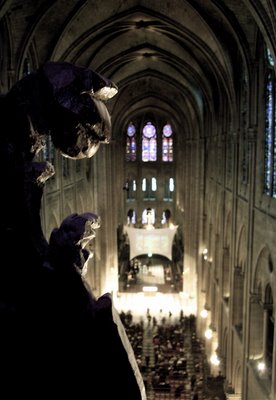
Here's the console viewed from the pipes:
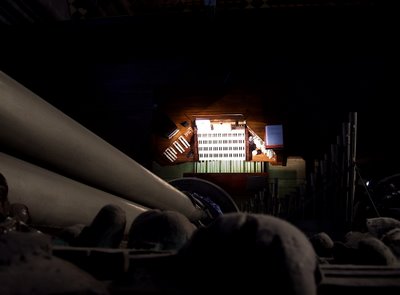
All this, about being smack up against the instrument with the bass notes rattling your vision, about flying through the church at eye-level with the nave windows an eighth of a kilometer away, is to say that I may have been responding in part to extra-musical stimulus while having my mind blown in the organ loft of Notre Dame. But both Sundays I left the church convinced of Olivier Latry's genius. His improvisations were complicated and terrifying, huge in scale, harmonically intricate - he raised the dead and cast them down again, he sent planets crashing into one another, evoked phantasmagoria, spiritual cataclysms, virgin worlds. He sang with his feet. He is, like Messiaen (without sounding like Messiaen), spectacularly excessive and shameless. Listening to Olivier improvise I was reminded of Copland after he heard Messiaen improvise at La Trinité, "shocked to hear him improvise everything from the 'Devil' in the bass to what sounded like Radio City Hall harmonies in the treble. I couldn't understand how the church allowed it!"
Olivier's imagination is at once so florid and so Gothic, and his fingers, heels and toes are so fantastically agile; it's shocking on a number of levels to hear him improvise. Quick, get to Notre Dame and hear this before the church figures out what he's doing up there and stops him! My conviction that I was in the presence of true genius was strengthened when he finished an improvisation: after bringing civilizations to an end and catapulting demons over heaven, he spins around and leaps off his bench with a mischievous half smile on his face as if he's just told a killing joke. As he spins, you can virtually see the sound making its journey through the church to the stained glass in the nave an eighth of a kilometer away.
One of the nice things about being in the organ loft is how casual it is up there. You can walk around, chit chat in a normal tone of voice; periodically the phone rings and Olivier communicates with ground forces. (When Pierre Cochereau ruled the loft, it's said that you could see plumes of cigarette smoke rising from the organ loft throughout the service.) The second time I went up, I brought my notebook and did some writing. James's arrival was just days away and I had a lot of outline to burn through. Fortuitously, I was writing a scene that takes place in church.
Perhaps an hour into the service, the phone rang. Olivier picked up the call and hung up laughing. The news: a riot had broken out in front of the church over the pope's recent remarks on the AIDS crisis in Africa - protesters were throwing condoms at the church and clashing with rightists. The ironies here were manifold - usually when a church is having condoms thrown at it, I'm outside, not in, and that church scene in my novel just happens to turn into a riot. The demonstration became impossible to ignore when the cops showed up with their sirens and I was reminded of another Apparition clip, which didn't make it into the final cut: Albert Fuller talked about going to hear Messiaen play at La Trinité one Sunday when an ambulance went by, howling its tritone: EEEE-awwww EEEE-awwww EEEE-awwww - "Messiaen picked it up on the organ, and improvised on it."
The demonstrators succeeded in blocking the entrance to the church, so the faithful had to leave by the side doors by the nave. Nobody could get into the church for the mass, so it played to a nearly empty house:
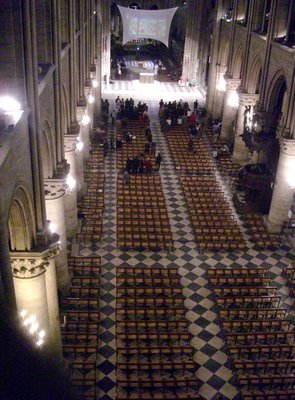
Backstage visitors had to leave the church through the front doors and this was the scene we encountered, with ACT-UP demonstrators playing dead on the right and riot police holding back the spectators (who knows what became of the rightists):
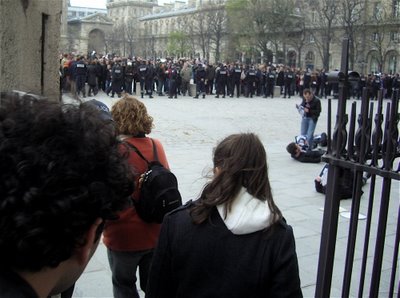
One nice thing about my visits to Notre Dame - I made a new friend:
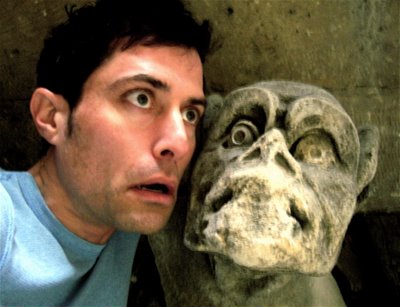
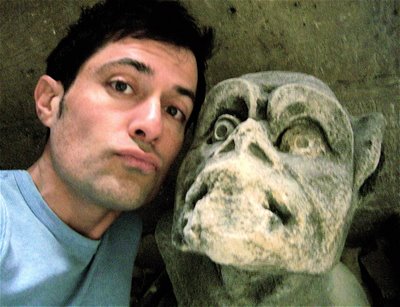
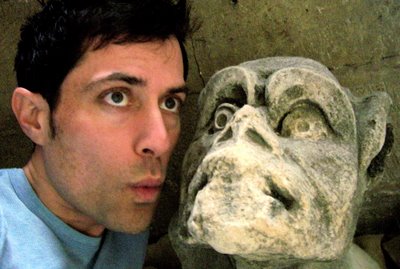
He lives in the utility room above the organ loft where there's a small loo. He seemed so lonely sitting there on the floor, in isolation from his fellow gargoyles, and I thought about trying to stuff him into my backpack but decided France might rev up one of those old guillotines if I got caught.
Back at the Récollets Center, I had swell neighbors:
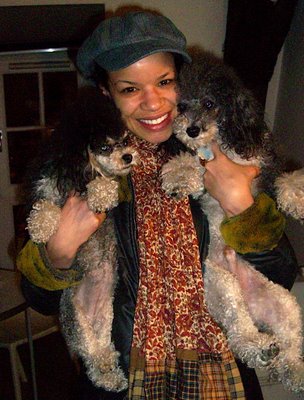
And frequent visitors, including Eli Zaretsky and his wife, philosopher of justice Nancy Fraser, in residence nearby in the 10th:
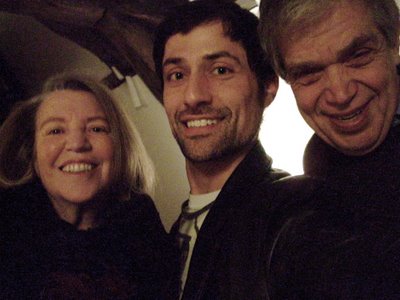
John Borland and Aimee Male, San Francisco friends in town from Berlin (they had 3 dozen oysters on the halfshell awaiting them on their arrival, along with sparkling Vouvray in Eiffel Tower champagne flutes) -
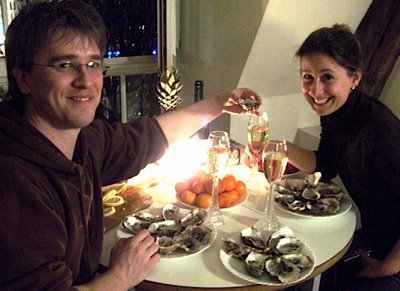
Yiftach Mizrahi, Israeli friend from San Francisco living in Geneva:
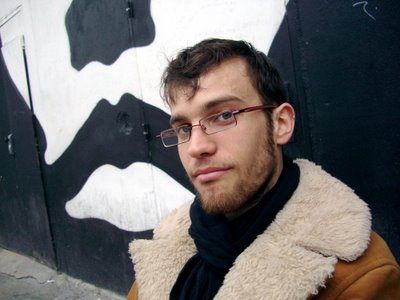
Geoff Dupuy, friend from Chartres I met at the Masked Ball:
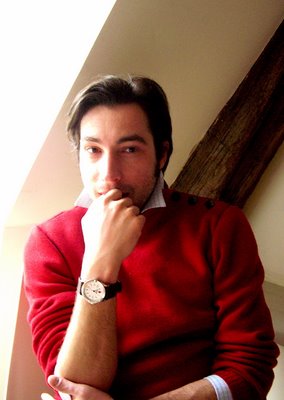
Brendan Krampf, Twin Cities writer living in Paris and another friend from the Masked Ball. In both looks and vocal mannerisms, he reminds James and me so much of our San Francisco friend Michael Steadman that it was surreal to hang out with him.
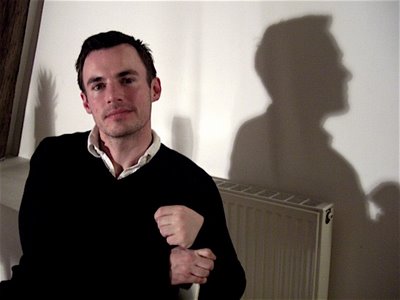
Another reason I got to so few museums is that there was so much to look at walking down the street. I'll close the Paris diary with some keepsakes of a shutterbug flaneur:
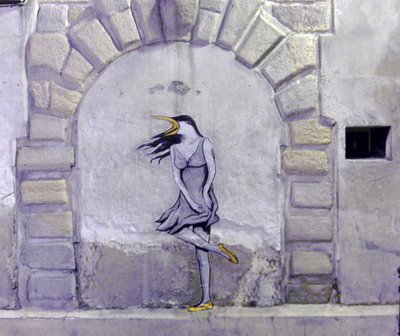
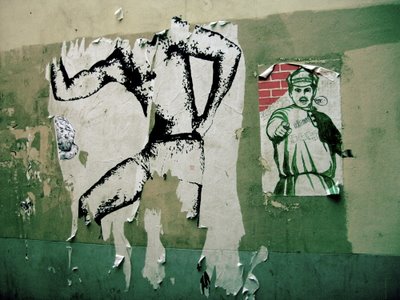
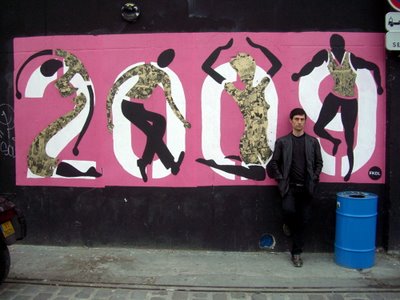
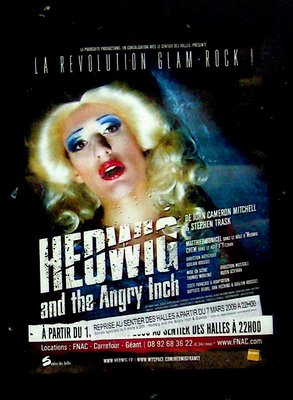
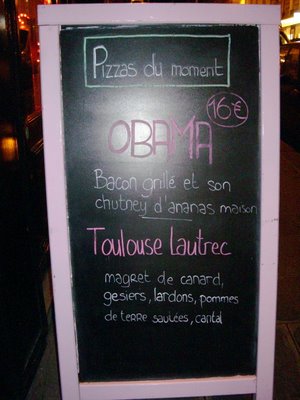
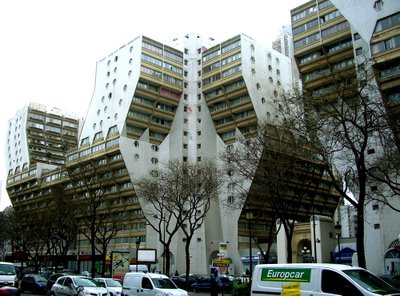
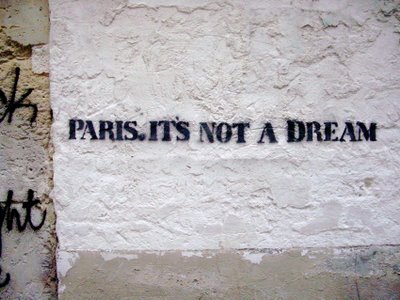
Labels: Albert Fuller, Apparition, John Cameron Mitchell, Messiaen, Oh My God, Paris, the novel

